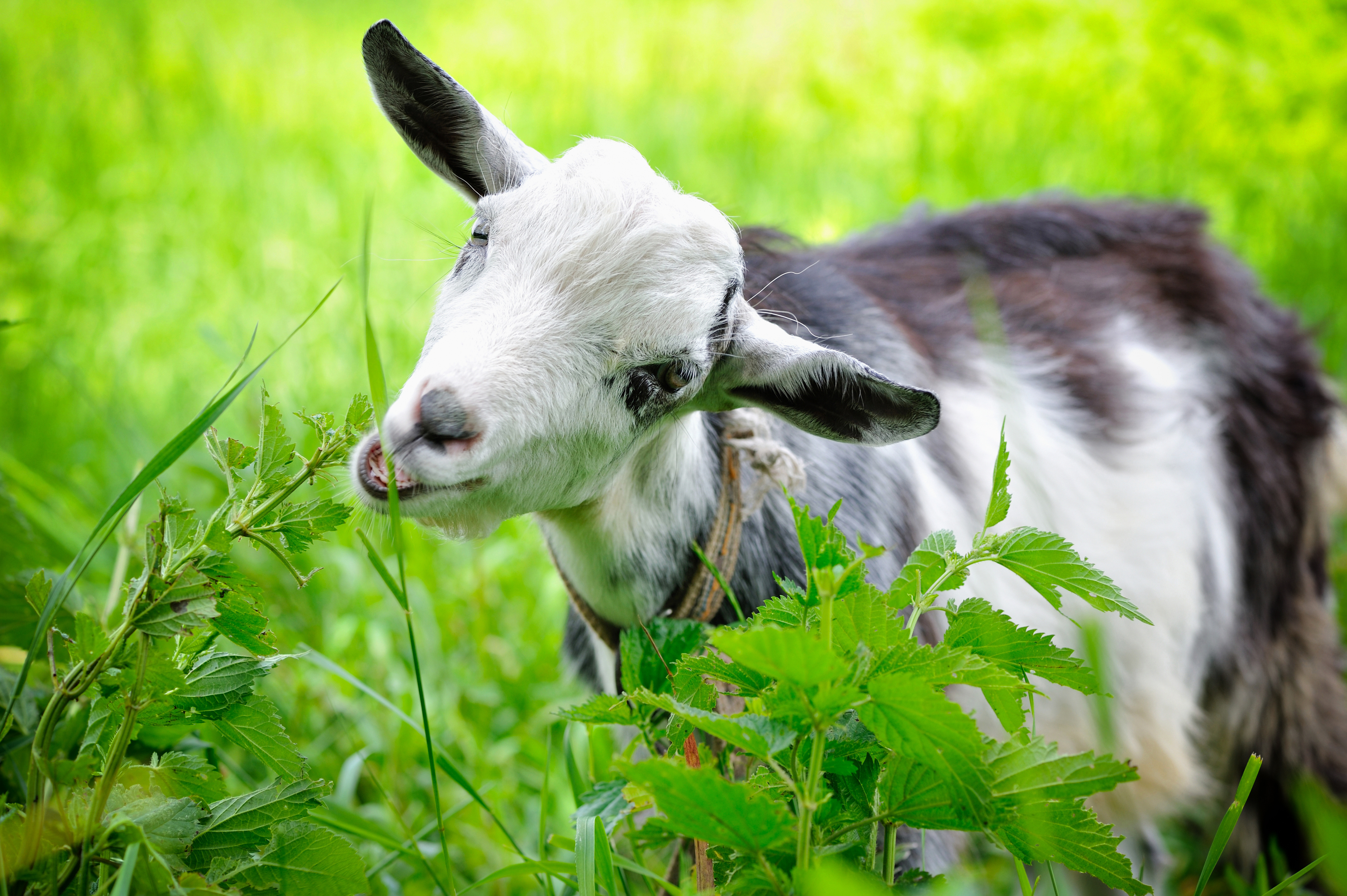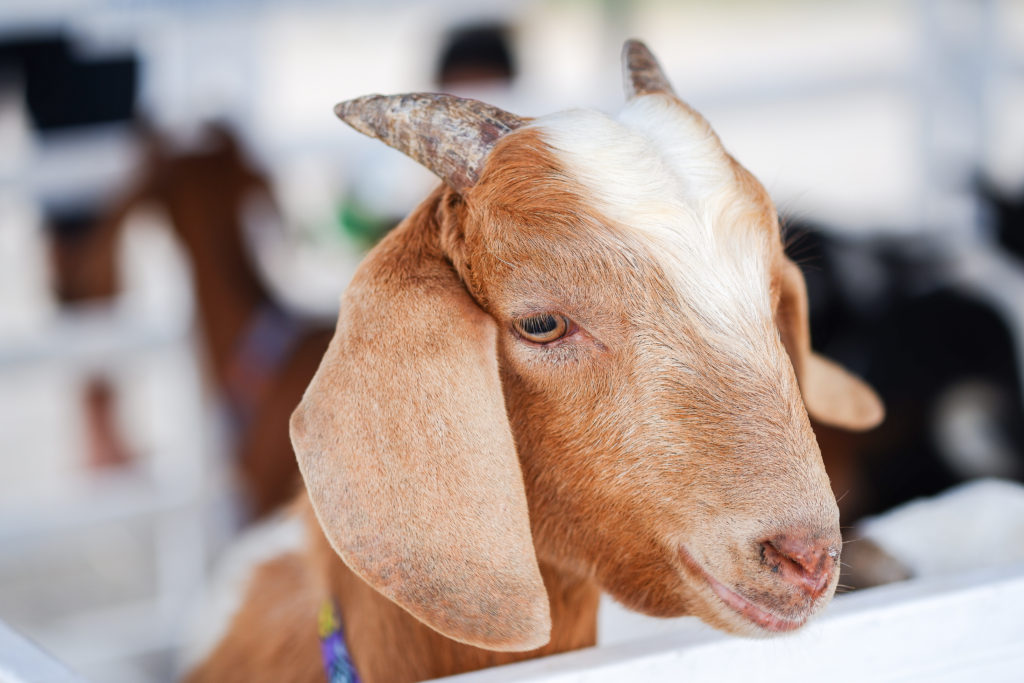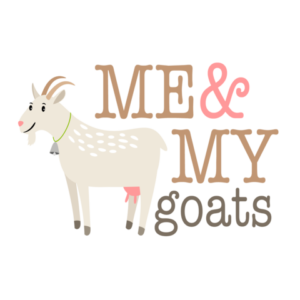
Goats will try to eat anything that they can reach with their mouths, up to and including things that are not food for them. Lots of animals will suffer from poisoning if they eat onions. If you have wild onions in your pasture, chances are your goats are eating them.
Onions are fairly poisonous to goats, but as long as they aren’t a regular part of your goat’s diet you shouldn’t be worried about them eating one or two every once in a while on accident. In higher doses, however, onion can make goats extremely sick.
What exactly makes onions poisonous to goats, and why will they seek out and eat them anyways?
What Makes Onions Poisonous?
Onions contain a particular alkaloid called N-propyl Disulfate. Alkaloids like this one are present in many poisons, and they can kind of wreck havoc on the bodies of animals.
While many alkaloids are dangerous for humans, the one in onions is not. Garlic and chives also contain exactly the same kind of alkaloid, and all of these plants are safe for human consumption.
For animals that can get onion poisoning, anemia and weakness are the most common symptoms. Sheep are the most resistant farmyard animals to poisoning, with goats following just behind.
Why Do Goats Eat Onions?
First of all, even if goats do eat onions that doesn’t mean they should. Goats eat all sorts of things that are terrible for them, and so it’s not really a good idea to trust them to know the difference between poisonous foods and safe ones.
But why do they do this? Well, goats are ruminates, the same kind of bovine animal as a deer. This means that they are primarily grazers, but that they forage to supplement their diet of most grass.
Why is this relevant? In nature, goats will rarely find enough wild onions to accidentally kill themselves, and onions have valuable nutrients that the goats may not be able to find in other plants later.
This is actually true of lots of plants, and so to take advantage of this goats have evolved this kind of eat whatever’s in front of you line of behavior.
In the wild, it helps goats avoid eating too much of any one kind of forage, since pretty much everything that goats eat that isn’t grass can be bad for them.
In captivity, however, because the goats need to stay in such a comparatively small space that always has pretty much the same forage in it, this behavior actually becomes somewhat dangerous.
What Happens If My Goat Eats One Onion?

Allow me to assuage you of your many many fears: The goat will be fine. As I said earlier, goats are actually fairly resistant to the poison that’s found in onions, meaning that if your goat eats one onion they will be absolutely fine. In fact, your goat can probably eat a couple of onions before getting sick.
This doesn’t mean that you should feed your goats onions! You never know if your goats have found another, secret source of onions that they’ve been feeding off of when you’re not looking, and the one onion you feed them could be what puts them over the edge.
Oh, but a lot of people swear up and down that if you feed your goats onions their milk will be disgusting, so take that into account when making your onion calculations.
What To Do About Onions
If you have a few wild onions in your pasture, you probably shouldn’t worry too much about them. As long as the goats are eating things other than the onions they’ll probably be alright. However, if you have a lot of wild onions, you should probably pull up most of them.
What about onions in a garden? Well, again, it depends on how many onions there are and whether goats are actually eating them.
If your goats are nibbling on two or three onions once every couple of weeks there’s probably nothing to worry about, but if you’re trying to grow a whole onion patch and the goats keep getting in to mess things up you should probably rethink that endevour.
How To Help A Poisoned Goat
First you need to identify that the goat is sick. Goats with onion toxosis have been eating a lot of onions, and will produce a strong onions smell through breathe, urine, and fecal matter. Since the primary symptom of onion toxosis is anemia, the goat will be weak.
Their pulse will be high and they will also act dizzy as a result of this. Their urine may also change to a dark brown color, and they may increase their rate of breath.
So, it should be fairly possible to spot. But what do you do once you’ve found it?
The first thing you need to do is get them off of the onions. If you’ve been feeding them onions, then stop doing that!
It’s more likely that they’ve found a source of onions somewhere in their space, and in that case you need to move the goat somewhere where you know there are no onions while you hunt the onion patch down and eliminate it once and for all.
This finished, if the anemia is bad enough you’ll need to bring your goat to the vet for a blood infusion. In fact, you should definitely bring your poisoned goat to the vet anyways. It can’t hurt and it will definitely increase their chances of recovery.
Once the goat has recovered, you should avoid feeding them more onions.
What Else Should Goats Avoid Eating?
Goats should never eat garlic or chives, as they have the same kind of poison as onions do. Aside from that, any source of caffeine is bad for goats, as is chocolate. You should also never give your goats meat, as they are herbivores and herbivores can’t digest meat.

